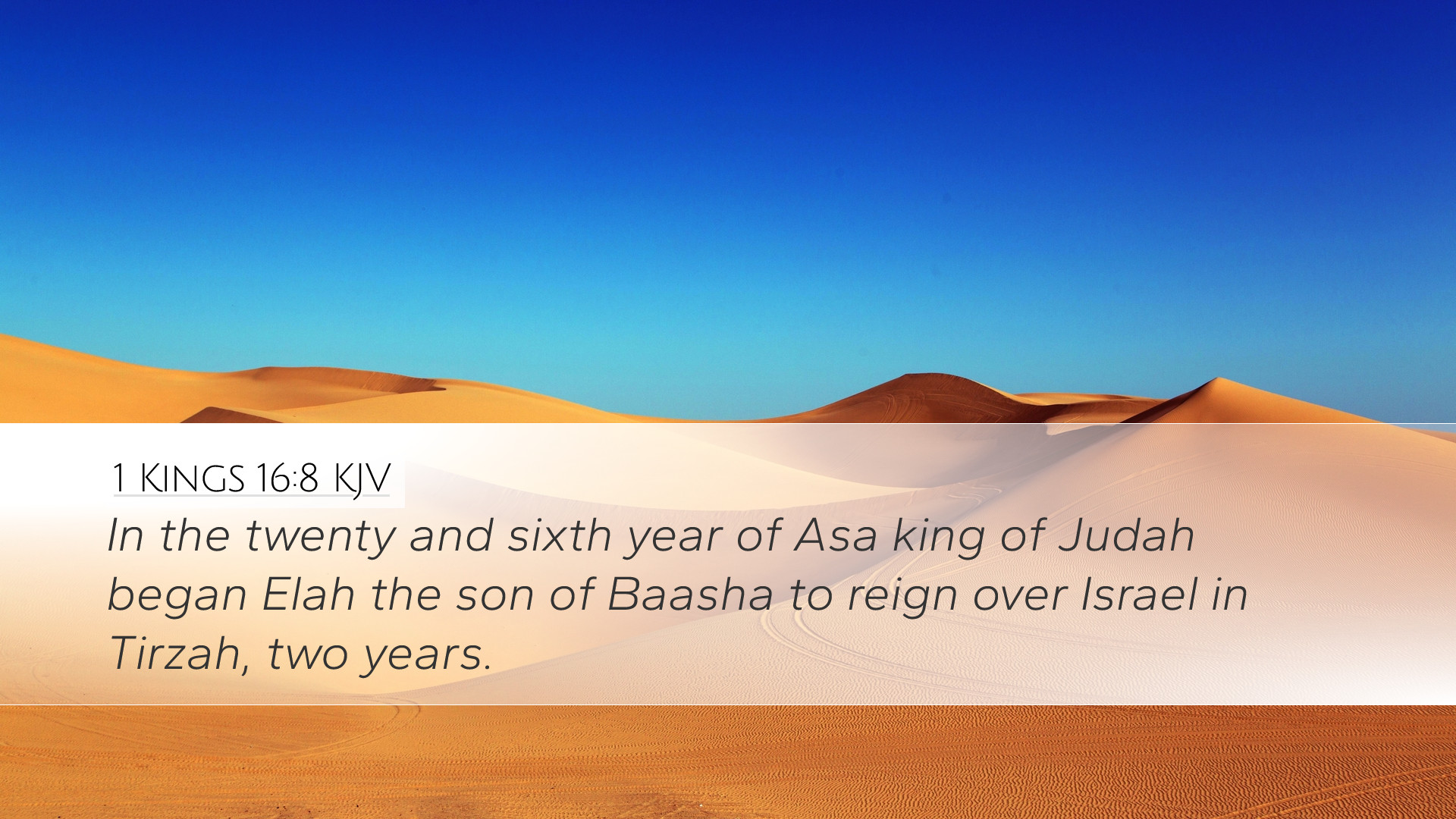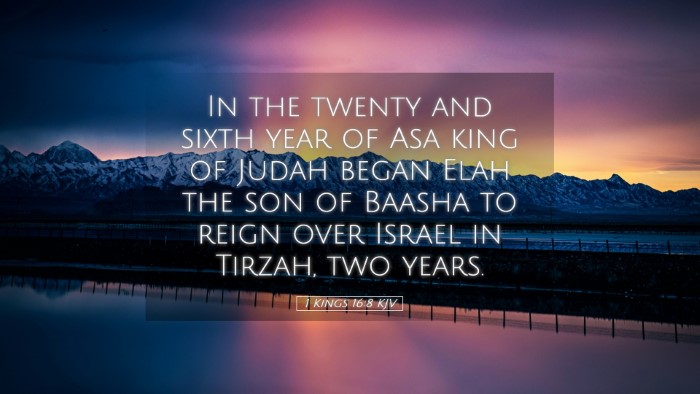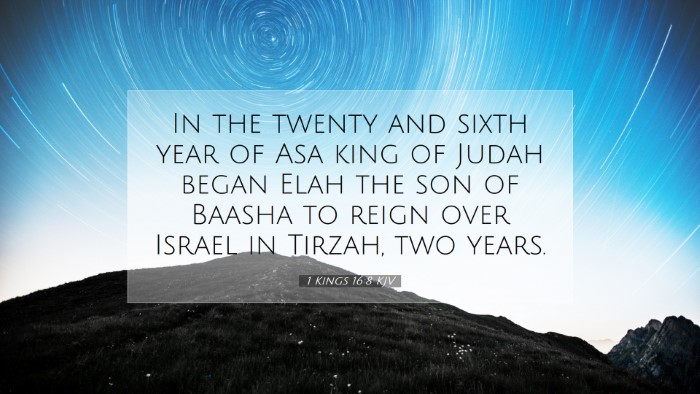Commentary on 1 Kings 16:8
Verse: "In the twenty-sixth year of Asa king of Judah began Elah the son of Baasha to reign over Israel in Tirzah, and reigned two years." (1 Kings 16:8)
Introduction
The historical context of 1 Kings 16:8 places it during a period of instability in Israel, marked by rapid succession of kings and the continuing division between the northern kingdom of Israel and the southern kingdom of Judah. This verse introduces Elah, the son of Baasha, highlighting the brevity of his reign and the larger political dynamics at play.
Historical Context
1 Kings 16 captures a tumultuous time in Israel's history. The reigns of the kings are often characterized by political intrigue, assassinations, and shifting allegiances. Baasha, Elah's father, was noted for eradicating the house of Jeroboam and establishing a new dynasty, yet this verse indicates that his legacy was short-lived as his son’s reign was scarcely noticeable.
Insights from Matthew Henry
Matthew Henry emphasizes the notion that Elah's reign was brief and insignificant. Henry points out that Elah reigned for only two years, suggesting that this brevity may reflect God's judgment on Israel’s continued worship of false idols and disobedience to divine commandments. This commentary draws attention to the recurring cycles in Israel's history where disobedience leads to political instability.
Henry also notes that the mention of Asa, king of Judah, serves as a contrast to the kings of Israel, portraying a differing commitment to God's laws in the southern kingdom. Asa’s reign is noteworthy for its reforms and efforts to eliminate idolatry, which Henry highlights as essential to understand the decline represented by Elah's tenure.
Insights from Albert Barnes
Albert Barnes provides a more analytical view of the reign of Elah. Barnes highlights that his two-year reign was marked by the influence of his mother, whose background may have led him away from the ways of God. The political assassinations that characterized the previous reign of Baasha seem to suggest a continuation of instability.
Barnes may also be suggesting that the brevity of Elah’s rule reflects not only his failure as a leader but also God's overarching sovereignty over the nations. The quick succession of kings serves as a reminder of the transient nature of human power compared to God’s eternal kingdom.
Insights from Adam Clarke
Adam Clarke provides a more detailed character analysis of Elah. He notes that Elah's reign is often overshadowed by the political machinations surrounding him. Clarke posits that the lack of action during Elah’s rule stands in stark contrast to the fervent idolatry and political unrest experienced earlier. He appears to have inherited a kingdom fraught with division and challenges.
Clarke further emphasizes that the internal strife within Israel and the weak character of her rulers stems from the nation's turn away from God. The fact that Elah is considered a king for only a fleeting moment serves as a sobering reminder of the consequences of turning one's back on divine statutes.
Theological Implications
This passage raises profound theological questions regarding divine providence and the relationship between God and national leadership. Elah’s reign serves as an example of how leadership can reflect a nation’s spiritual condition. The instability within Israel can be viewed as a direct result of the people's disobedience and failure to uphold God's commandments.
God's Sovereignty in Human Affairs
The reign of Elah, brief as it was, exemplifies God’s control over earthly kingdoms. Despite the failure of human leaders, God remains sovereign, orchestrating events according to His divine plan. This serves as an encouragement for the faithful that the ultimate authority does not lie in transient rulers.
The Call to Faithfulness
The commentary on this verse implores readers, particularly pastors and theologians, to reflect on the importance of faithfulness to God's commands. Elah’s story is a warning against complacency and the spiritual decline that may result from ignoring God’s directives.
Conclusion
1 Kings 16:8 encapsulates the precarious nature of political leadership in Israel during a time of turmoil. Insights from Matthew Henry, Albert Barnes, and Adam Clarke collectively highlight themes of divine judgment, the consequences of idolatry, and the fleeting nature of human authority. Pastors, students, and theologians are called to consider the implications of this passage carefully, urging a deeper commitment to God amidst a world fraught with uncertainty and decline.


